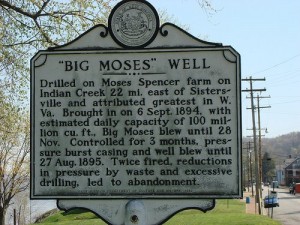There is an Implied Right to Pool an Oil and Gas Lease <??? – DGN>
From the Jackson Kelly Law Web-Site, Oil & Gas Leases, April 20, 2016
In a case of first impression in West Virginia, on April 15, 2016, Judge David W. Hummel, Chief Judge of the 2nd Judicial Circuit (Marshall, Wetzel and Tyler Counties, West Virginia), entered an order ruling that there is an implied right to pool an oil and gas lease. The case, American Energy – Marcellus, LLC v. Poling, et al., Civil Action No. 15-C-34 H, involved an 1894 lease held by production but containing no express pooling clause.
There were numerous unknown and missing heirs and a few current mineral owners who refused to sign pooling amendments. American Energy – Marcellus, LLC, now known as Ascent Resources – Marcellus, LLC, filed a civil action seeking a declaratory judgment that it had an implied right to pool the lease with others to form a drilling unit or, alternatively, seeking a partition by allotment and sale of the oil and gas estate. Ascent then moved for summary judgment on the request for a declaratory order.
The Court found that the lease was silent on the subject of pooling. Yet, horizontal drilling, hydraulic fracturing and formation of units are necessary to economically develop the shale formations. The Court analyzed the law and theoretical underpinnings surrounding implied covenants and implied rights, the purpose of a lease (being production of oil and gas and payment of royalties), and public policy.
The Court found that an implied right to pool and unitize is reasonably necessary, does not harm the mineral owners, promotes development, prevents delay and unproductiveness, implements the intent of the parties, and is consistent with public policy. The Court held that Ascent has an implied right to pool the oil and gas lease.
The Court also specified the terms and conditions upon which the lease could be pooled and unitized (e.g., operations in unit are deemed operations on each lease, allocation of production and payment of royalties on basis of acreage, etc.).
Ascent was represented by Jackson Kelly PLLC. The complete order can be accessed here.
See more at: http://oilandgas.jacksonkelly.com/marcellus/#sthash.Asf8ur78.dpuf
> > > > > > > > >
INSIDE SHALE is a weekly radio program of one hour duration sponsored by the West Virginia Oil and Natural Gas Association. This program on April 26th was dedicated to a discussion of the Tyler County Circuit Court decision on the “implied pooling case” described above. Audio and video playback is possible so long as WAJR Radio retains this program on their web-site.
Web-site: http://wajr.com/insideshale/ See also: www.FrackCheckWV.net


{ 2 comments… read them below or add one }
That’s pretty close to confiscation for private use. The original separation of surface from minerals has about run its chase. Multiple owners of the mineral estate, some of them lost, implies no one really had a use for it beyond rentier ownership. That is, they simply wanted income without management or even paying taxes.
So why not just let the companies use it – but what do they do with the lost owner royalty, keep it, too? Good deal for them.
Many Marcellus wells are LLC’s and will go out of business when the profit ends, so the royalty won’t be recoverable by legal means.
This is an interesting case, thanks for sharing!